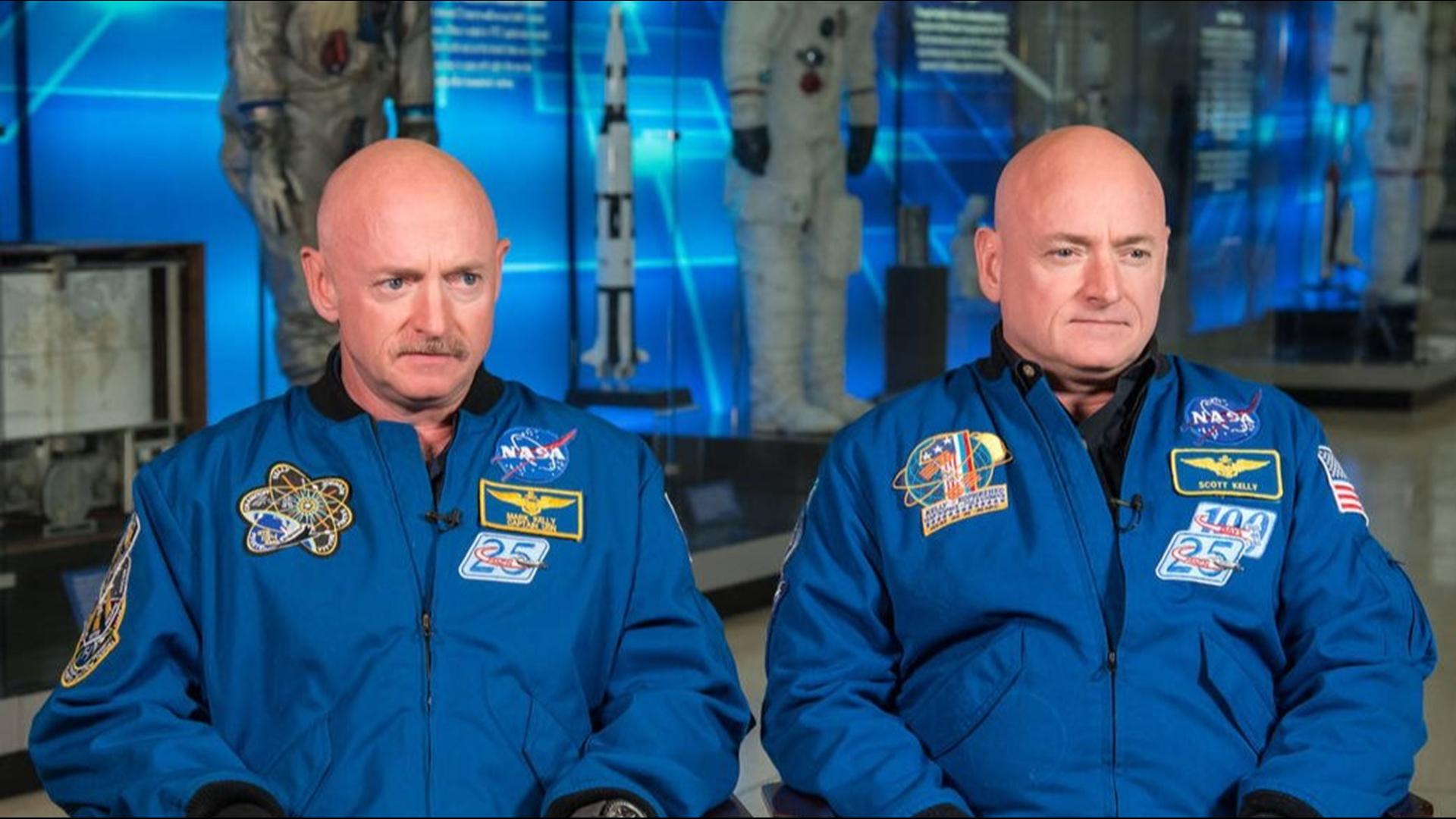PHOENIX - You may have seen reports that Mark and Scott Kelly are no longer identical twins after Scott spent a year in space. Well, that statement is not quite true.
While he was on the International Space Station, the way Scott's DNA behaved changed, rather than the DNA's structure itself.
That doesn't mean the results aren't groundbreaking, though.
We talked to Dr. Melissa Wilson Sayres, an assistant professor at Arizona State University's School of Life Sciences, to clear up the confusion about the study's results.
According to NASA, the protective end caps on Scott's chromosomes, called telomeres, became significantly longer in space. This was an unexpected finding because telomeres typically shorten as the cells divide during the aging process, Wilson Sayres said.
So what that means is that researchers saw Scott's cells behaving differently. For example, his immune activity increased, likely due to the new environment, according to researchers.
"We have no idea why they grew and why they shrank," Wilson Sayres said, adding that we may not have a lot of long-term studies that would tell us whether the average person's telemores grow here on Earth.
The remaining 7 percent of Scott's genes, however — related to the immune system, DNA repair, bone formation and the amount of oxygen and carbon dioxide in the blood — did not return to their previous conditions, even after six months on Earth, the study found. These genes are sometimes called space genes.
"We're seeing that when Scott Kelly went to space, there were little tags put on his DNA to change how it behaved, probably in response to being in the stresses of space," Wilson Sayres said. "And what's cool is that, even six months after being home, it still wasn't behaving the way it was before. And so we don't know how long out it'll keep those little tags."
Sometimes, here on Earth, certain conditions can change gene expression for a brief amount of time, but we've never seen a change persist for this long.
"We know exercise can change the way our genes behave on a short term, the amount of sleep you get, the amount of stress you're experiencing, these can all change your gene behavior on a short scale. But we don't know these long-term stressors, how they change our gene expression on the long term," Wilson Sayres said.
She said some of the genes in some of Scott's cells might've changed because he was exposed to more UV radiation without the protection of Earth's atmosphere.
"But it wouldn't be across his whole body," Wilson Sayres said.
So, yes. Scott and Mark Kelly are still very much identical twins.
NASA released a statement on Thursday to clarify what they originally said about the study:
"Mark and Scott Kelly are still identical twins; Scott’s DNA did not fundamentally change. What researchers did observe are changes in gene expression, which is how your body reacts to your environment. This likely is within the range for humans under stress, such as mountain climbing or SCUBA diving.
The change related to only 7 percent of the gene expression that changed during spaceflight that had not returned to preflight after six months on Earth. This change of gene expression is very minimal. We are at the beginning of our understanding of how spaceflight affects the molecular level of the human body. NASA and the other researchers collaborating on these studies expect to announce more comprehensive results on the twins studies this summer."

